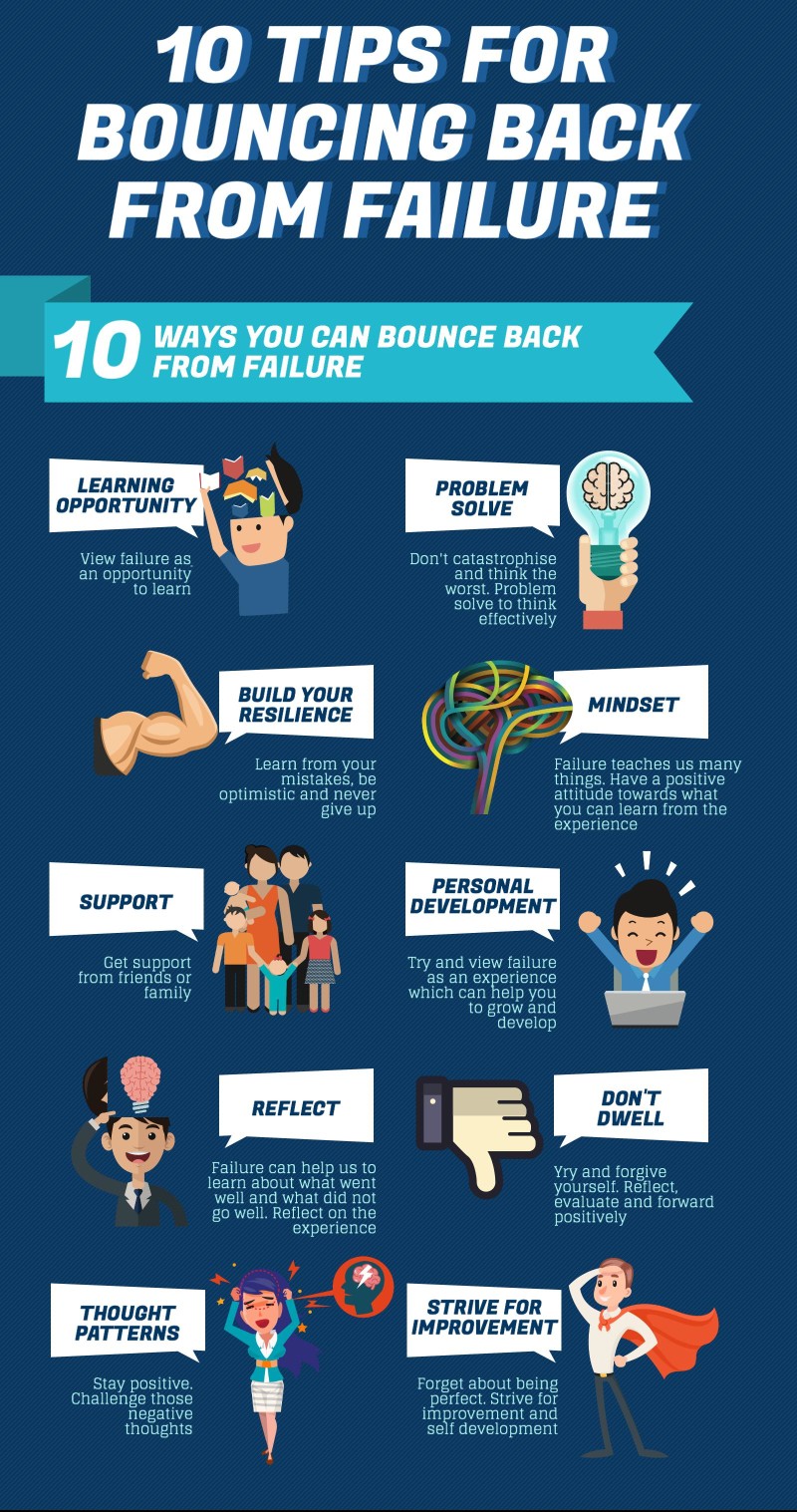Bouncing Back After Failure is a Mindset. What’s in Your Resiliency Tool Box?
The definition of toughness is the ability to feel comfortable being uncomfortable.
As an athlete, experiencing failure can push you to feel very uncomfortable!
Great coaches remind their teams that this uncomfortable feeling is a good thing. You learn, grow, and unlock your potential to perform at a high level outside of your comfort zone. A failure isn’t fatal, and it most definitely doesn’t define you. It is simply an event that happened. So instead of allowing failure to be a setback, act like a champion: take control, change your perspective, and make a plan. High performers re-purpose failure into something positive and constructive. They view it as an opportunity to bounce back (also known as resilience) and improve their game. So, add some tools to your resiliency tool box for quick access when the going gets tough!
Failure is actually great feedback, allowing you to learn your limits, and giving you great insight into making adjustments for the future. It is such valuable experience for next time, which in many sports happens within seconds or minutes (so remember where your shoes are, and stay in the moment). If you start to notice your thoughts becoming negative recognize this right away, learn to shut the negativity off, and re-focus your mind. When you have time to slow down after competition is over, spend some time quietly reflecting about how you handled the adversity.
If you’re really struggling with developing a positive relationship with failure, rely on your strong support network! Talk to family, friends, or both about why you’re having a hard time. Are you afraid to mess up? Are you trying to be perfect? A positive mindset in adversity, when things are uncomfortable, takes a lot of practice; and mastering the bounce-back doesn’t happen overnight.
So say this to yourself often: “I am strong enough to own my failure, I am not a failure.” Own it, refocus, and stay in the present moment to make failure your best training partner!
This infographic details are some constructive ideas for preparing for failure and responding to it in the moment. How can these strategies be helpful for you?


Infographics used with permission of the BelievePerform Shop.




About The Author
BelievePerform Shop
In today’s sport, the performance of an elite athlete requires great physical, technical and tactical qualities, though at the top level, these are not enough. Performance psychology is now playing a much larger role in sport and many clubs and teams in over 70 countries across the planet are now recruiting top psychologists to help improve performance.